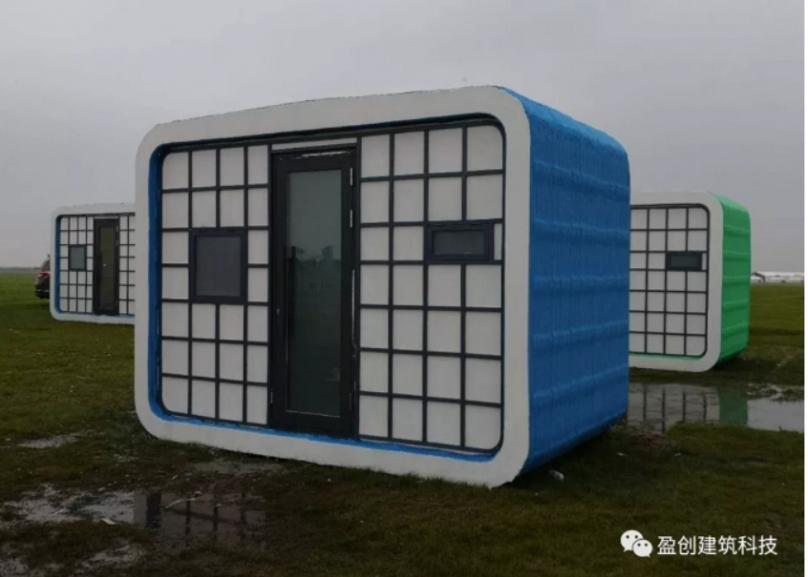
The Chinese company WinSun is helping in the fight against the epidemic of the coronavirus by constructing isolation wards. The company is printing modular mobile isolation wards on its self-developed 3D printers.
3D printing has proven to be a unique technology that has a plethora of various applications, such as space engineering, car industry, medicine, and construction.
WinSun is considered to be the leading construction company that uses 3D printing technologies. With only several such companies in the world, WinSun certainly takes the cake of the most recognized one. The Shanghai-based company contributed to various demonstration and commercial projects, including the first 3D-printed office in the world located in Dubai, a two-story mansion and a five-story residential building in Suzhou Industrial Park, as well as bus stops and a half-kilometer river revetment wall along the Suzhou River. The new project is the construction of residential and isolation houses in Hubei province, the center of the coronavirus outbreak. The first fifteen isolation wards have already been printed and transported to the Xianning Central Hospital. The company plans to 3D print 200 such units.

The printed structures measure 5.5 and 10 square meters and have a height of 2.8 meters, but the size can be changed on request. Inside, each isolation house can fit a bathroom and one or two beds for patients or medical staff who are in need of temporary housing for the period of fighting against the epidemic. The structures are earthquake-resistant, equipped with thermal insulation and can be connected to a power supply. It takes only two hours to 3D-print a single unit, although it takes several days for the concrete structure to solidify. Typically, the whole process from 3D printing to delivery takes 3-7 days. WinSun has twenty construction 3D printers, so it is possible to start mass production of such structures.
Originally these structures were not designed for the fight against the epidemic or for isolation at all, they were designed as inexpensive and transportable residential houses, for example, for tourist bases, but it turns out that the 3D-printed houses can also be useful for the ongoing fight against the coronavirus. The cost of a single unit amounts to $4,000 and depends on the size, design, and amenities. The most expensive versions feature solar panels on the roof, air conditioning, furniture and a bathroom with a shower. The houses can be rented for $150 or $200 per month, depending on the size of the unit.

The company produced the first units at its own expense and organized a public campaign to raise funds and acquire equipment to produce more isolation wards and equip them to become comfortable temporary residences with solar panels, electrical appliances and so on. The isolation wards are printed from a special combination of concrete and recycled construction materials. Lightweight compact houses can be quickly transported from region to region and easily recycled after use.

